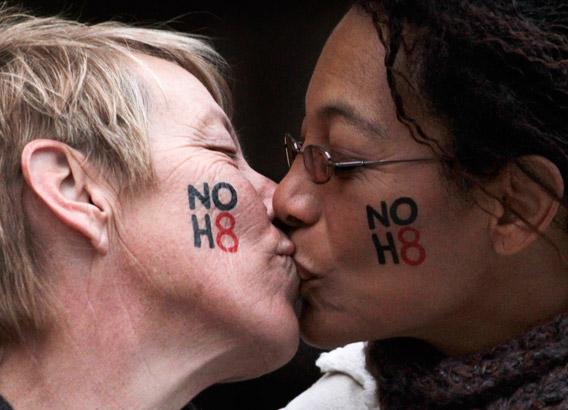Former George W. Bush aide and GOP operative Ken Mehlman has convinced more than 100 prominent Republicans to sign a brief urging the Supreme Court to overturn California’s ban on gay marriage. These so-called amicus curiae, or “friend of the court,” briefs tend to garner heavy media attention, but do they influence the justices?
It depends on the amicus. Amicus curiae briefs are submissions to the court on behalf of people or organizations that are not parties to the case. It’s difficult to measure their effectiveness because, these days, both sides of most cases receive amicus briefs. At the beginning of the 20th century, amicus briefs were filed in only 10 percent of cases. Amici now participate in 85 percent of high-court cases. Some patterns have emerged, however. Some amici are better than others. The solicitor general, who represents the United States government before the Supreme Court, is by far the most influential amicus a litigant can have before the court. When the administration submits an amicus curiae brief, the government’s side wins 75 percent of the time, and the solicitor general’s winning percentage seems to be increasing. Other experienced organizations, such as the ACLU and the AFL-CIO, are also statistically likely to have their side succeed. If you can’t get a big-shot amicus on your side, hire an experienced attorney. High-profile Supreme Court litigators seem to have more success with amicus briefs than other attorneys do. The most notable example of this came last year, when a number of military leaders signed a brief supporting affirmative action in Fisher v. University of Texas. Although the case is still pending, and the court may well oppose affirmative action, the amicus brief made an obvious impression on the court. During oral argument, the justices pressed the opposing attorney to address “the Carter Phillips brief,” a reference to the experienced Supreme Court advocate who helped draft it.
What does that mean for Ken Mehlman’s brief in the gay-marriage case? The opinion of many legal scholars is that the brief will have minimal impact, if any, on the outcome of the case, and the statistical evidence seems to support this view. While the list of signatories includes an array of GOP big-wigs, the group doesn’t have the institutional sway of the solicitor general, the broad base of the AFL-CIO, or the historical pedigree of the ACLU. The brief was prepared by Seth Waxman, who is one of the most successful litigators in the country, but high-profile attorneys are somewhat weak indicators of amicus brief success.*
The majority position among legal scholars is that amici can be helpful, especially in complex cases. They may offer arguments that the parties do not make themselves or provide technical expertise. Opponents of amicus briefs agree that they influence the justices, but not always in a good way. In the 1996 case Jaffee v. Redmond, for example, the Supreme Court had to decide whether a patient’s conversation with his psychotherapist could be excluded from evidence, as a type of privacy similar to the doctor-patient privilege. The court received 14 amicus curiae briefs from groups favoring the new privilege, including psychiatrist and patient-advocacy organizations, and not a single brief opposing it. The problem, as Justice Scalia argued in his dissent, is that some issues or positions don’t have a “self-interested organization” able and willing to lobby the Supreme Court. That doesn’t mean the viewpoint is legally unsound. Scalia’s concern is that amicus briefs turn the Supreme Court from a legal institution into a second Congress, where interest groups tussle for dominance.
Got a question about today’s news? Ask the Explainer
Correction, Feb. 28, 2013: This article misstated that the amicus brief was drafted by Ted Olsen and David Boies, the attorneys for one of the parties to the case. It was drafted by Seth Waxman. (Return to the corrected sentence.)
